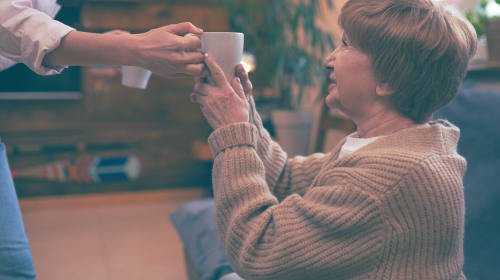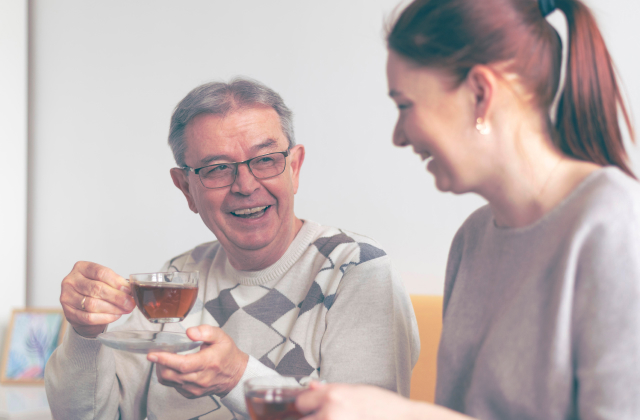Guide of Angel Care Ink. to Understanding Maximum Hours in the Consumer Directed Personal Assistance Program (CDPAP)
The Consumer Directed Personal Assistance Program (CDPAP) serves as an essential resource for individuals requiring home care services. A crucial component of this program is understanding the maximum number of hours available for care, which ensures that both caregivers and care recipients can manage and receive adequate support.
What is CDPAP? CDPAP is a Medicaid program in New York State that empowers consumers to hire and manage their own caregivers, including family members or friends. This model offers flexibility and a personalized approach to care, enabling individuals to remain at home rather than transitioning to institutional settings. It supports those who need help with daily living activities.
Determining CDPAP Hours The hours of care a recipient can receive through CDPAP vary based on their individual needs. A comprehensive assessment by a nurse or care coordinator determines these hours. This assessment evaluates:
- Medical Condition: The severity of the recipient’s medical condition significantly influences the allocation of hours.
- Daily Living Activities: The level of assistance required for daily activities like bathing, dressing, and eating is meticulously assessed.
- Personal Preferences: The recipient’s lifestyle and personal preferences are considered to create a respectful and effective care plan.

Maximum Hours Allowable Although there is no fixed statewide cap on the number of hours, they must correspond to the medical needs and care plan established during the assessment. If justified, recipients may receive up to 24 hours of care daily, delivered through live-in care or split shifts to provide continuous support.
Important Considerations
- Medical Condition: The severity of the recipient’s medical condition significantly influences the allocation of hours.
- Authorization: All care hours need approval from the overseeing managed care organization or the local Department of Social Services. Unauthorized care may lead to coverage gaps.
- Documentation: Proper documentation, including detailed care logs and medical records, is critical to justify the requested hours.
How to Maximize CDPAP Hours To make the most of the CDPAP hours available, consider these steps:
- Thorough Assessment: Ensure the initial assessment thoroughly reflects the care level required.
- Regular Communication: Keep consistent communication with your care coordinator or nurse to inform them of any changes in your health or care needs.
- Detailed Documentation: Maintain precise records of all care provided and any significant incidents to support the need for additional hours.
CDPAP offers a customizable and empowering approach to home care, giving recipients significant control over their care arrangements. Familiarizing yourself with the process for determining maximum allowable hours is key to effectively navigating and optimizing the care received under CDPAP with Angel Care Ink.. For additional guidance and support, contacting a Angel Care home care agency Ink. NY is advisable.

Selecting the right care option for yourself or a family member involves navigating complex decisions. This analysis delves into the distinct differences and factors of in-home care vs. assisted living facilities, providing critical insights to help guide your decision. Home Care vs Assisted Living Facilities Home care offers customized medical support and daily assistance within the comfort and privacy of one's own home, promoting a higher degree of independence. In contrast, assisted living facilities provide a communal setting where round-the-clock support is available, and social engagement is integrated into daily routines. Services Offered Some innovative assisted living facilities who offer home care have created a hybrid model that includes home care assisted living facilities. This model merges the privacy of in-home care with the comprehensive access to medical and social services typical of an assisted living setup. Here, home health care in assisted living facility environments ensures that residents receive timely medical attention without the need to relocate as their health care needs escalate. Cost Comparison Cost considerations form a significant part of the decision-making process. Typically, personal care home vs assisted living facility expenses can vary, with personal care homes generally being more economical but less luxurious compared to full-service assisted living facilities. Quality of life is a pivotal consideration. In-home care allows for substantial independence, while assisted living provides more extensive opportunities for socialization and planned activities. The suitable choice often depends on each person’s health status and lifestyle preferences. Flexibility and Customization These facilities are increasingly recognizing the importance of flexibility and personalization in meeting the diverse needs of their residents. By integrating the personalized approach of home care with the structured support of assisted living facilities these facilities can offer residents a best-of-both-worlds scenario. Moreover, this integration often extends beyond just health care to include personalized activity programming, dietary plans, and wellness services that align with each resident's lifestyle and interests. Such holistic care approaches not only improve the physical health of residents but also cater to their mental and emotional well-being. Another key aspect of these customized plans is the use of technology to enhance the caregiving process. Many assisted living facilities that incorporate home care services utilize advanced health monitoring systems and communication tools. These technologies help in keeping a detailed track of the health status of residents, allowing for timely medical interventions and providing families with peace of mind regarding the safety and well-being of their loved ones. This progressive model significantly enriches the resident's experience in the facility, making it possible to maintain a high quality of life through tailored care that respects individuality and fosters independence. Key Decision-Making Factors Both home care and assisted living offer unique benefits, making the optimal choice dependent on individual care needs, financial constraints, and personal preferences. For those looking to explore their options and find the best care setting, consulting with professionals can be invaluable. Visit Angel Care for expert advice and support in navigating these options. Our team is dedicated to assisting you in finding the ideal care solution that aligns with your needs, ensuring a high quality of life and well-being.

Veterans' spouses play a vital role in providing care and support to their partners. To help them navigate their lives and foster both their personal and professional growth, a variety of benefits for spouses of disabled veterans have been designed in recognition of their immense contributions. The following is a detailed look at the benefits available to spouses of disabled veterans, particularly those with a 100% disability rating. VA Assistance Programs for Spouses of Disabled Veterans To be eligible for VA assistance programs for spouse of 100 disabled veteran ratings, the spouse must be legally married to the veteran. Additionally, the disability rating must be determined by the Department of Veterans Affairs, and the disability must be service-connected. An eligible survivor of a service member who dies during active duty or from a service-connected disability can receive Dependency and Indemnity Compensation (DIC). Pension for surviving spouses of deceased wartime veterans who are low-income and unmarried. In the CHAMPVA program, eligible veterans receive health care benefits that cover most medical services and supplies. Learning Support for Partners of Injured Military Service Members Fry Grant: Offers learning advantages to the kids and widows/widowers of military personnel who passed away while serving. This encompasses payment for schooling, a regular allowance for housing, and a bonus for educational materials and necessities. Program for the Education of Dependents of Veterans (DEA): Provides up to three years of educational and training support to dependents of veterans who are permanently disabled because of a condition related to their service. This support is available for both college and certificate courses, apprenticeships, and training while working. Job Guidance: Offered by the VA, job guidance assists partners in examining different job options and making educated choices regarding their learning and work objectives. Rental and Mortgage Help VA-Guaranteed Mortgage for Spouses: Partners of veterans who have passed away while serving or due to a disability related to their service might be eligible for a VA-backed mortgage. This can lead to better loan conditions and sometimes even remove the requirement for a down payment. Specialized Housing Assistance (SHA) Program: Helps veterans with certain disabilities related to their service get funding or make changes to their homes to suit their requirements. Spouses of veterans who are still alive and receiving this support can remain eligible. Holistic Support Comprehensive Assistance: The VA offers a range of support services, including therapy to assist partners in dealing with the difficulties of their loved one's disability, such as support for mental health, guidance for marriage and family issues, and tools for managing stress. Temporary Relief for Caregivers: Provides a brief break for caregivers by offering short-term care for the disabled veteran, giving the spouse an opportunity to relax and rejuvenate. In-Home Assistance for Veterans: Vital Details for Service Members' Families A lot of military households might not know about the home health care services that are out there for veterans. If you or someone close to you is looking after a veteran, here's a guide on how to find and take advantage of these services. Offerings: In-Home Nursing Care, Break Care, Assistance with Daily Living, and In-Home Health Care Assistance In-Home Care Nursing (Extended Support): Offers skilled nursing services around the clock for individuals requiring advanced medical care, including support for feeding tubes, tracheostomies, breathing machines, and intravenous lines. Individuals Providing Home Care and In-Home Care Assistants: Help older or disabled veterans with their everyday tasks, aiding them to remain in their homes for as long as feasible. They support with activities such as eating, getting dressed, personal hygiene, bathing, minor cleaning, washing clothes, and purchasing groceries, all while being overseen by a Registered Nurse. Temporary Care: Offers brief care services to give a break to main caregivers, usually for durations ranging from a few hours to a day. Home Care Angel Care Ink. Support Veterans The wide range of support offered to partners of disabled veterans covers many areas of life, such as financial aid, learning opportunities, medical services, and job-related help. Through these supports, partners can improve their standard of living, seek out educational and job chances, and get the help they need to properly support their disabled veteran spouse. Knowing and getting this support can greatly affect the lives of those who have given so much for their nation. At Angel Care, we offer help with everyday activities and additional requirements in in-home care.



